 Unlocking UK Productivity is a new report which has been co-authored by Goldman Sachs, the ESRC funded Enterprise Research Centre (ERC) and the British Business Bank (BBB). Its findings draw heavily on ERC’s core research themes. To read the full press release, please click here.
Unlocking UK Productivity is a new report which has been co-authored by Goldman Sachs, the ESRC funded Enterprise Research Centre (ERC) and the British Business Bank (BBB). Its findings draw heavily on ERC’s core research themes. To read the full press release, please click here.
Category / Knowledge Exchange
Congratulations to FHSS staff on latest KPI publication
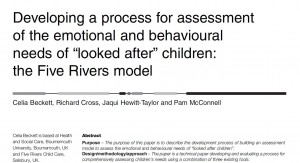 Congratulations to FHSS Celia Beckett and Jaqui Hewitt-Taylor and colleagues Richard Cross and Pam McConnell based at Five Rivers Child Care, Salisbury. Their first paper describes the exciting process of a Knowledge Transfer Partnership (KTP) project between BU and Five Rivers Child Care which started in 2012 and finished recently in 2015.[1] The project was established to develop a stepped assessment package that would help to identify the emotional and behavioural needs of children who are looked after to ensure the right services are accessed and to monitor their progress.
Congratulations to FHSS Celia Beckett and Jaqui Hewitt-Taylor and colleagues Richard Cross and Pam McConnell based at Five Rivers Child Care, Salisbury. Their first paper describes the exciting process of a Knowledge Transfer Partnership (KTP) project between BU and Five Rivers Child Care which started in 2012 and finished recently in 2015.[1] The project was established to develop a stepped assessment package that would help to identify the emotional and behavioural needs of children who are looked after to ensure the right services are accessed and to monitor their progress.
Congratulations,
Professor Edwin van Teijlingen
CMMPH
Reference:
- Celia Beckett , Richard Cross , Jaqui Hewitt-Taylor , Pam McConnell (2015) Developing a process for assessment of the emotional and behavioural needs of “looked after” children: the Five Rivers model Journal of Children’s Services, 10(4): 324-38.
Upcoming ‘Ageing Well Photographic Exhibition’ supported by British Society of Gerontology
 Public engagement and impact are important to consider if we want our research to make a difference. In response to this, one PhD student from the Faculty of Health and Social Sciences will use photographs to creatively disseminate research findings. The ‘Ageing Well Photographic Exhibition’ will share about the role community based exercise programmes play in adding to the health and wellbeing of older people. It will also be a great opportunity to showcase the positive aspects of active ageing.
Public engagement and impact are important to consider if we want our research to make a difference. In response to this, one PhD student from the Faculty of Health and Social Sciences will use photographs to creatively disseminate research findings. The ‘Ageing Well Photographic Exhibition’ will share about the role community based exercise programmes play in adding to the health and wellbeing of older people. It will also be a great opportunity to showcase the positive aspects of active ageing.
To support the event Michele Board and Clare Farrance have been successful in securing a grant from the British Society of Gerontology. The support of the BSG for the event is a valuable endorsement of the important topic of positive ageing and enhancing our understanding of later life.
More details will be posted closer to the time of the event launch. In the meantime if you have any questions feel free to contact Clare at cfarrance@bournemouth.ac.uk
Dr Lenia Marques expands collaboration with Recife, Brazil
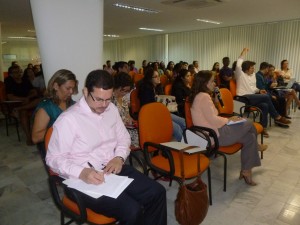
Dr. Lenia Marques recently visited Recife, in Brazil, where she was invited as a keynote speaker for the celebrations of the 20th anniversary of the Department of Hospitality and Tourism at the Federal University of Pernambuco. The audience warmly welcomed her presentation on creative economy, tourism and events.
Besides this talk, Dr. Lenia Marques participated in a number of other meetings, including discussions to prepare future projects related to the development of creative economy activities in Pernambuco State. These meetings involved different stakeholders, including representatives of the public administration, creative entrepreneurs and NGO’s. One of the outputs of this collaboration is a study on network sociality, which has now been submitted for publication.
Smart 2015/2016 – R&D funding available
 A grant scheme which offers funding to small and medium-sized enterprises (SMEs) to engage in R&D projects in the strategically important areas of science, engineering and technology.
A grant scheme which offers funding to small and medium-sized enterprises (SMEs) to engage in R&D projects in the strategically important areas of science, engineering and technology.
The scheme supports SMEs carrying out R&D which offers potentially significant rewards and that could stimulate UK economic growth.
- Proof of market
- Proof of concept
- Development of prototype.
Contact a member of the funding development team if you have any questions .
Cross-platform production in digital media – up to £4m available
For more information on this call click here.
Contact a member of the funding development team if you have any questions .
Game Changing Technologies for the Energy Sector – Information Webinar
 The Knowledge Transfer Network is organising a webinar to promote a new Innovate UK competition that will open in 2016.
The Knowledge Transfer Network is organising a webinar to promote a new Innovate UK competition that will open in 2016.
Innovate UK is allocating up to £1.5m for their “Energy Game Changer” competition. The funding will be allocated to feasibility studies led by SMEs who can provide disruptive solutions to long established challenges which currently cost the energy sector hundreds of millions of pounds per year.
Amongst the high level challenges where radical multi-disciplinary solutions are sought are:
- improving condition monitoring, inspection, handling, characterisation and repair of energy assets
- minimising the risk and cost of operating in remote and hazardous environments
- generating and handling ‘big data’ to optimise performance, efficiency, safety and security
- getting individuals and communities excited and engaged in energy reducing the consumers energy bills
To encourage radical change and new ideas, the competition is specifically looking for solutions from innovative SMEs whose main business is divorced from the energy sector and can look at the challenges from new perspectives. Such organisations may be engaged in activities such as; ICT, digital, design, electronics, sensors, modelling, virtual reality, gaming, robotics, UAVs, forensics, manufacturing, inspection and advanced materials.
We also welcome technology transfer ideas from other sectors such as; defence, automotive, medical, space and creative industries.
Innovate UK is looking to fund around 20 feasibility studies of between £50-100k in size and 6-12 month duration.
The information webinar will give you the opportunity to:
- understand the background to the competition
- hear about the specific challenges and competition scope in more detail
- hear about the competitions eligibility criteria, application process, funding and timescales
- ask online questions
- network online
- Further physical events are scheduled for 2016.
Find out how to submit your Festival of Learning 2016 Proposal
The Festival of Learning enters its fourth year in 2016 and will be running from Saturday 25 – Wednesday 29 June. It’s a fantastic public engagement opportunity for BU to showcase the great research coming out of the university. The call for proposals is now open and the process for submitting an application is simple:
- Think of an idea for an event that demonstrates your research – will it be innovating and interesting to members of the public? Watch our video from 2015 for some inspiration.
- Decide if you want your event to be a bookable event that people can sign up for or whether you’d like a run a stall or drop in activity instead (i.e. an activity based on passing traffic rather than pre-bookings)
- Consider who you want to be your target audience (adults, families, businesses etc.)
- Consider whether your event meets the Festivals objectives, what you plan to do during the event, how it will appeal to your intended audience and what your attendees will get out of attending the event.
- Complete the Festival of Learning event application before January 31st 2016: see here (We are unable to accept late proposals due to the tight turn around between the call closing and review by the panel.)
If you would like to discuss an idea in more detail, please call/ email Naomi Kay (Public Engagement Officer) 61342/ nkay@bouremouth.ac.uk or click here for more detailed information about submitting a proposal.
The Hands-on Guide to Midwifery Placements – Newly published book
 Student midwives spend approximately 50% of their three year undergraduate programme in the clinical area. Going to a new placement is often a stressful time for them as they consider ‘will they fit in’, ‘will they know enough’, ‘have they the right skills’, ‘what will they be able to learn whilst there to meet their practice assessments’ and so on. Other concerns relate to being away from home, what hours they are expected to do and how they cope with ‘difficult’ mentors. If students are unfamiliar with healthcare environments it takes time for them to adjust and become used to the environment. It was these thoughts that began fermenting in my head back in 2010 and following a positive response from students whose views on a book on placements were informally sought, I pitched the idea to a commissioning editor at Wiley Blackwell. In addition wider research had revealed that no such book existed within the published midwifery arena. Finally, in 2012 a contract was agreed between myself, and Margaret Fisher, Associate Professor in Midwifery at Plymouth University to co-edit nine chapters for submission in November 2014. The book is now due for publication on the 11th December 2015.
Student midwives spend approximately 50% of their three year undergraduate programme in the clinical area. Going to a new placement is often a stressful time for them as they consider ‘will they fit in’, ‘will they know enough’, ‘have they the right skills’, ‘what will they be able to learn whilst there to meet their practice assessments’ and so on. Other concerns relate to being away from home, what hours they are expected to do and how they cope with ‘difficult’ mentors. If students are unfamiliar with healthcare environments it takes time for them to adjust and become used to the environment. It was these thoughts that began fermenting in my head back in 2010 and following a positive response from students whose views on a book on placements were informally sought, I pitched the idea to a commissioning editor at Wiley Blackwell. In addition wider research had revealed that no such book existed within the published midwifery arena. Finally, in 2012 a contract was agreed between myself, and Margaret Fisher, Associate Professor in Midwifery at Plymouth University to co-edit nine chapters for submission in November 2014. The book is now due for publication on the 11th December 2015.
Professor Paul Lewis wrote the forward and chapter contributions from Bournemouth University lecturers, Dr. Sue Way, Stella Rawnson and myself, prepare prospective and current students for midwifery practice and the profession, caseloading and the elective period. Jo Coggins and Henrietta Otley, both midwives practising in North Wiltshire were co-opted to write chapters on ‘Preparing for practice’ and ‘Low-risk midwifery placements’. Other chapters were written by Margaret Fisher and Faye Doris at Plymouth University.
The final published edition is small enough to fit into a uniform pocket and contains many vignettes from students currently or previously studying at Bournemouth and Plymouth University. Their stories reflect ‘real life’ clinical experience and ‘Top Tips’ provide overall advice. Three original cartoons illustrating the vagaries of placement were devised by Clare Shirley (formerly a BU student, now a newly qualified midwife) and Hugo Beaumont (4th year medical student at Plymouth University). Students and women have provided photographs. Both Margaret and I hope students far and wide will enjoy the book which aims to provide a realistic perspective on clinical placement, by offering hints and tips and encouragement along their student journey.
Cyber Security Innovation Vouchers – Round 14

Up to £5k funding for start-up, micro, small and medium-sized enterprises to work with an external expert to gain the knowledge to innovate and grow. This voucher is only for cyber security advice including advice leading to certification under the Cyber Essentials Scheme.
For more information click here.
Closing 5 January 2016 – 12pm Noon.
Contact a member of the funding development team if you have any questions .
Why not get involved in the British Science Festival 2016?
The call for event proposals and Award Lecture nominations for the British Science Festival 2016 are now open.
The British Science Festival is Europe’s longest-standing national event which connects people with scientists, engineers, technologists and social scientists. Tens of thousands of people come together to celebrate the latest developments in science and to engage in open discussion about issues that affect our culture and society.
Each September the British Science Festival transforms a different UK city into a vibrant celebration of science, engineering and technology.
The British Science Festival will be returning to Swansea University from 6-9 September 2016. The Festival is a national platform to showcase cutting-edge science, celebrate the latest scientific developments and engage in open discussion about issues that affect our culture and society.
The British Science Association needs your help to curate a vibrant programme of events. Proposals should be aimed at non-specialist adults with a broad interest in science. Find out how to submit an event and nominate an Award Lecture on the British Science Festival website here: http://www.britishscienceassociation.org/british-science-festival
Specifically, they are looking for original, high quality science entertainments events for a wide range of audiences, including families, children, young adults, special interest groups and followers of the arts.
- Previous kinds of events have included:
- Workshops for adults and for families.
- Comedy, drama and musical shows.
- Sci-art collaborations
- Trips to places of interest in the local area
- Behind the scenes tours
- Science shows
Anyone can propose an event – individuals, researchers, organisations or academic institutions from all over the UK. Events can be talks, debates or discussions for a public audience.
The call for proposals will close on 25 March 2016 and the deadline for Award Lecture nominations is 4 March 2016.
If you have any questions or want to discuss your ideas, please contact:
Rosie Waldron (Engagement Manager, British Science Association) T: +44 (0)20 7019 4941 E: rosie.waldron@britishscienceassociation.org
China – UK Research and Innovation Bridges Competition
Innovate UK, RCUK and the Ministry of Science and Technology (MoST) for the People’s Republic of China are to invest up to £16 million in collaborative research and development projects that propose new commercial solutions to critical cha llenges impacting the socio-economic growth and development of China in relation to energy, healthcare, urbanisation and agri-food.The UK investment has been made possible through the Department for Business, Innovation and Skills-managed Newton Fund.
llenges impacting the socio-economic growth and development of China in relation to energy, healthcare, urbanisation and agri-food.The UK investment has been made possible through the Department for Business, Innovation and Skills-managed Newton Fund.
The aim of the competition is to bring together companies (small to medium-sized companies and/or larger businesses), research organisations, academics and other collaborators from China and the UK for the joint research and development of new solutions to key socio-economic challenges, in the form of innovative products, processes or services. The principal market a project must consider is China. Projects must be collaborative, involving both UK and Chinese participants, with both a UK lead partner and a Chinese lead partner. On the UK side, projects can be led by either a business or a research organisation. The lead partner should be able to demonstrate a clear route to commercialisation of the proposed product(s) or service(s), and should have a primary focus on the translation of research and/or knowledge.
Ethnographies of West Howe: student research projects and community collaboration
Over the past few weeks, students on BA Sociology and Anthropology (Faculty of Health and Social Sciences at BU) have been carrying out ethnographic studies in West Howe, Bournemouth. As part of a focus on expanding undergraduate opportunities to conduct first hand research, students have designed their research projects collaboratively with local groups and organisations based in West Howe.
A short drive from Talbot campus, West Howe comprises a large post-war council estate, and faces a number of contemporary challenges in terms of employment, education, health and well being. It is also a green, spacious and welcoming community, with many active local initiatives aiming to improve quality of life for people in the area. Some aspects of its pre-World War Two history as a rural farming community remain present in its contemporary physical environment, combining with the modernist 1950s vision of suburban public space expressed in the architecture and street design. Local people’s experiences of the transition of the area from a largely rural hamlet to a modern housing estate, involving rapid population increase and large scale construction, was captured beautifully in two oral history books published in the 1980s – West Howe Proper and West Howe Too!
 From an early point in their research projects, BU students invested time in building relationships with people in West Howe, working collaboratively with local schools, churches, children’s centres and volunteer groups to identify their key research questions, think through issues of research ethics, and use appropriate methods to gather relevant data, including participant observation, interviews, surveys and focus groups. Many student projects were inspired by the activities of local organisations, residents and volunteers, and the possibilities of engaged ethnography to produce findings that are locally useful and make a difference to people’s lives.
From an early point in their research projects, BU students invested time in building relationships with people in West Howe, working collaboratively with local schools, churches, children’s centres and volunteer groups to identify their key research questions, think through issues of research ethics, and use appropriate methods to gather relevant data, including participant observation, interviews, surveys and focus groups. Many student projects were inspired by the activities of local organisations, residents and volunteers, and the possibilities of engaged ethnography to produce findings that are locally useful and make a difference to people’s lives.
Next Thursday 3rd December students will be presenting their research findings to the community and inviting their engagement, comment and discussion. Themes of the research projects include: primary school education, children’s play and recreation, access to employment, perceptions of addiction, wellbeing and social support, social mobility and transport. Interested BU colleagues are also welcome to attend – please email Dr Rosie Read know if you plan to come (email: rread@bournemouth.ac.uk).
Event details:
Thursday 3rd December, 10am-1pm. Fernhealth Play, Verney Road, Bournemouth BH11 8DA.

‘Vulnerable Warriors: Counter-terrorism and the rise of Militarised Policing’ seminar by Dr Anna Feigenbaum and Daniel Weissman,
Dr Anna Feigenbaum
Daniel Weissman
2nd December 2015, Royal London House, R303, 1-1:50 pm
All staff and students welcome to the last Social Science seminar in 2015.
Abstract:
This paper seeks to better understand the cultural and material processes of police militarization and its relationship to security infrastructures and geo-political practices of social control. In this paper we trace the rise the ‘Warrior Cop’ through an analysis of changes in the circulation of advertisements of policing and policing products at security expose between the late 1990s and the present, taking our analysis up through the recent Paris attacks and the Milipol Security expo held days after.
This analysis is framed against the backdrop of existing research on the shift in the post-Cold War period from a security focus on the threat of the nation-state to the threat of insurgency and non-state actors. This period was characterized by national and transnational changes to policing: intelligence gathering and information sharing, as well as equipment supply and transfer and knowledge exchange around training and operations.
We begin this paper with an overview of the key shifts in the military and policing sectors that gave rise to the phenomenon of ‘Warrior Cops’. In contrast to dominant narratives of police militarisation that see power and tactics shift directly from the military to the police, we outline what we refer to as the militarization of security, a process through which not only the police, but also judicial and emergency response services, infrastructures, feelings and attitudes become transformed in ways that position the need for warriors against the threat of risky spaces and vulnerable bodies.
For any enquiries regarding the Social Science seminar series please contact Dr Mastoureh Fathi: mfathi@bournemouth.ac.uk
Institute of Global Health Innovation – Student Challenges Competition 2015

The vision at Institute of Global Health Innovation (IGHI) is to support the identification, development and widespread diffusion of healthcare innovation and in doing so to sustainably reduce global health inequalities across the globe.
The Student Challenges Competition offers students a key opportunity to showcase their research idea and to win prize money of up to £5,000 to develop this further. Runners-up prizes will also be awarded.
This year, it is also compulsory for all applications to be accompanied by a 2-3 minute promotional video illustrating the project idea and how it works.
As part of the Audience Choice Award, £500 is up for grabs to shortlisted candidates for those who produce the best video. The winners will be announced at the Dragon’s Den event with the rest of the prizes.
The competition is open to all UG & PG students based in the UK and can be on any aspect of global health innovation.
Jaeyeon Choe PhD, recent book chapters.
Jaeyeon Choe PhD, a new member of the Department of Events & Leisure has just published book chapters that you might be interested in using for teaching or research. Please contact Jaeyeon at jchoe@bournemouth.ac.uk for a PDF copy of each chapter for research and/or teaching purposes.
“Developing Student Engagement in China through Collaborative Action Research” in Tourism Education: Global Trends and Issues (2015) Amazon Book link
“China’s Tourism’s March Forward: Towards a Green Transition or Unsustainable Tourism” in Tourism in the Green Economy (2015) Amazon Book link
“Religious Tourism Experiences in South East Asia” in Religious Tourism and Pilgrimage Management: An International Perspective (2015) Amazon Book link
Thank you! 🙂
Creating Impact: BU Partner of 1st German CSR Communication Congress
More than 200 communication and corporate social responsibility (CSR) professionals attended the 1st German CSR Communication Congress last week in Osnabrueck. Due to management academic Dr Tim Breitbarth’s involvement in initiating, organising and moderating this successful event, BU was recognised as one of its academic partners.
This first congress was based on a collaboration between the German Public Relations Association (DPRG), the European Business Ethics Network Germany (DNWE) and the German Federal Environmental Foundation (DBU). Dr Breitbarth is a founding member of the CSR working group within the DPRG.
Welcoming speeches (e.g. from a representative from the German Federal Ministry of Labour and Social Affairs), the keynote (from the editor-in-chief of a well-known business magazine), the panel discussion (e.g. with the director corporate sustainability of Tchibo and a board member of Transparency International Germany) and special workshops of the 1.5-day congress revolved around the rising relevance of internal and external CSR communication – e.g. in the context of increasing pressure to report on CSR; the need for constructive stakeholder dialogue; and in order to manifest internal support for sustainability strategies. Dr Breitbarth moderated the workshop on social media and online communication.
Mainly, attendees came from large firms like Aldi, Audi and German Telecom; internationally successful SMEs; leading sustainability and communication agencies; and influential civil society organisations. Reviews of the congress are widely available in respective German media. Feedback from participants very much suggests that the event built-up specific knowledge, provided inspiration to solve individual challenges and helped to create valuable business contacts. The second congress will be held in 2017.
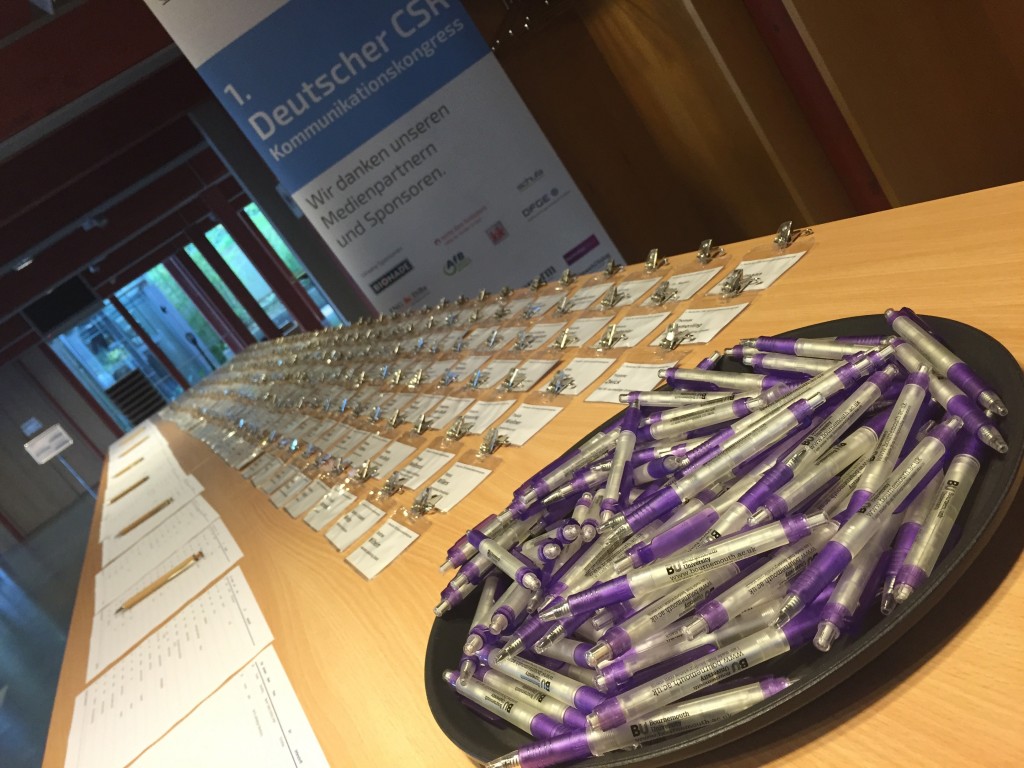
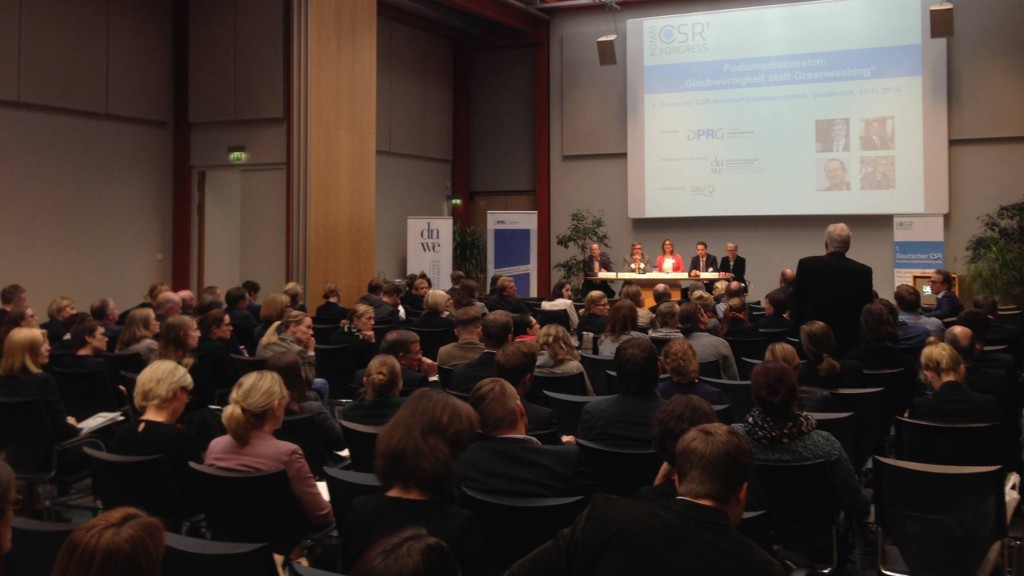
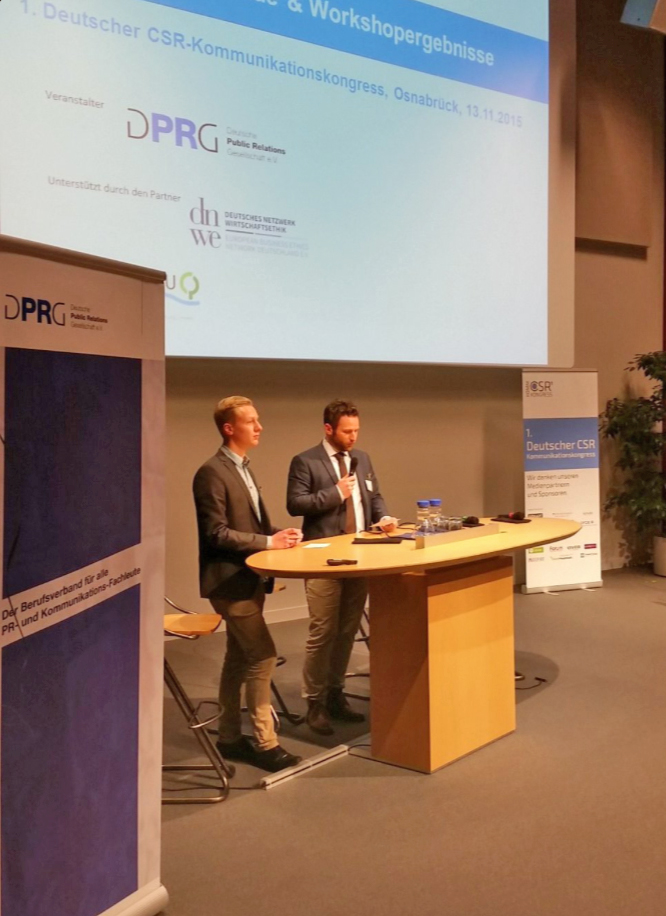
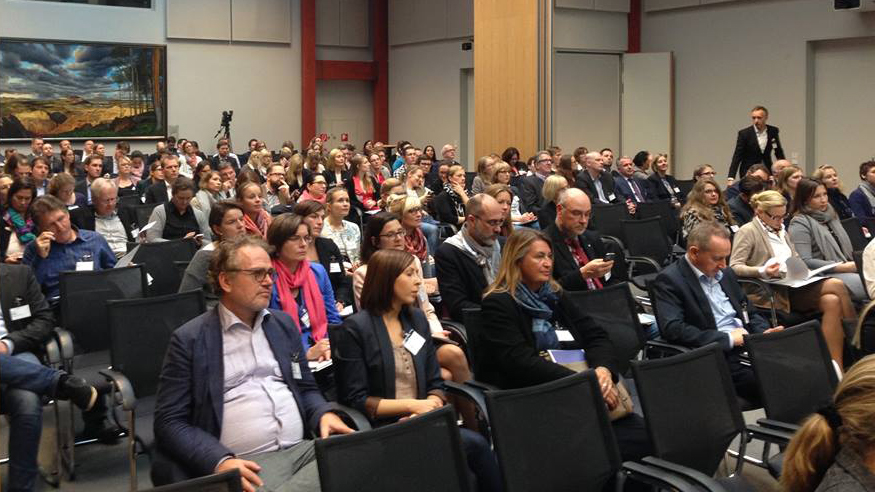
Research from the Department of Psychology in the New Scientist
Research resulting from a BU-funded PhD studentship is featured in this week’s edition of the New Scientist, and was also recently covered by the Independent. Under the supervision of Dr Sarah Bate from the Department of Psychology (Faculty of Science and Technology), Anna Bobak has spent the last three years investigating so-called “super recognisers”, or people with extraordinary face recognition skills. It appears that only a small proportion of the general population have these skills, yet they may be incredibly useful in forensic and security tasks, such as the identification of perpetrators from CCTV footage or in passport control. While super-recognisers have previously been identified via laboratory tests of face recognition, Anna’s work demonstrates that only some of these individuals also excel at more applied face recognition tasks. In a recent paper published in Applied Cognitive Psychology, she demonstrates that more real-world tasks are required to identify the super recognisers who can truly be of value to the Police Force and in national security settings.
Anna has recently moved into a PDRA position where she continues to work with Sarah in the field of super recognition. Her post is part of a HEIF5+1 initiative that aims to generate knowledge exchange with the Police. The team are currently working directly with Dorset Police to create screening tools that can identify officers who may be particularly suited to certain face recognition tasks, and to make a series of recommendations for best practice that are extracted from excellent performance. They are also creating resources that educate officers about the limitations and biases that act upon the human face recognition system, and how these may influence core policing activities.













 Dr. Ashraf cited on ‘Modest Fashion’ in The Guardian
Dr. Ashraf cited on ‘Modest Fashion’ in The Guardian NIHR-funded research launches website
NIHR-funded research launches website Academics write for newspaper in Nepal
Academics write for newspaper in Nepal New paper published on disability in women & girls
New paper published on disability in women & girls Global Consortium for Public Health Research 2025
Global Consortium for Public Health Research 2025 MSCA Postdoctoral Fellowships 2025 Call
MSCA Postdoctoral Fellowships 2025 Call ERC Advanced Grant 2025 Webinar
ERC Advanced Grant 2025 Webinar Horizon Europe Work Programme 2025 Published
Horizon Europe Work Programme 2025 Published Horizon Europe 2025 Work Programme pre-Published
Horizon Europe 2025 Work Programme pre-Published Update on UKRO services
Update on UKRO services European research project exploring use of ‘virtual twins’ to better manage metabolic associated fatty liver disease
European research project exploring use of ‘virtual twins’ to better manage metabolic associated fatty liver disease